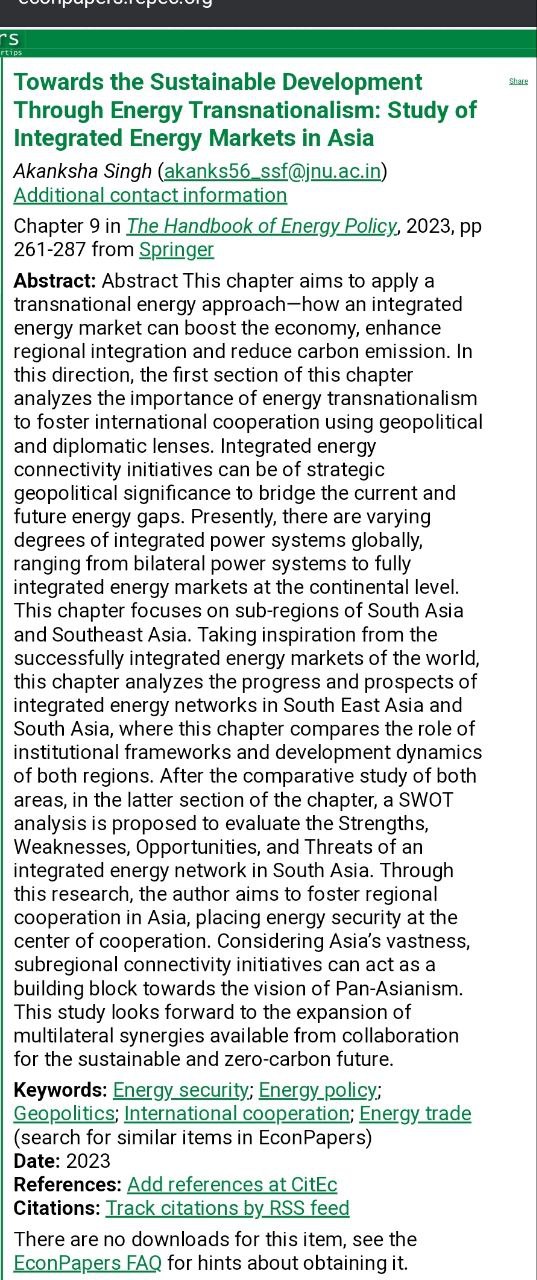
Keyword(s)
Author(s)
Akanksha Singh
Country(ies)
Publisher
Published Date
Access
DOI
Institute for Global International Relations, Tokyo, Japan
This chapter aims to apply a transnational energy approach—how an integrated energy market can boost the economy, enhance regional integration and reduce carbon emission. In this direction, the first section of this chapter analyzes the importance of energy transnationalism to foster international cooperation using geopolitical and diplomatic lenses. Integrated energy connectivity initiatives can be of strategic geopolitical significance to bridge the current and future energy gaps. Presently, there are varying degrees of integrated power systems globally, ranging from bilateral power systems to fully integrated energy markets at the continental level. This chapter focuses on sub-regions of South Asia and Southeast Asia. Taking inspiration from the successfully integrated energy markets of the world, this chapter analyzes the progress and prospects of integrated energy networks in South East Asia and South Asia, where this chapter compares the role of institutional frameworks and development dynamics of both regions. After the comparative study of both areas, in the latter section of the chapter, a SWOT analysis is proposed to evaluate the Strengths, Weaknesses, Opportunities, and Threats of an integrated energy network in South Asia. Through this research, the author aims to foster regional cooperation in Asia, placing energy security at the center of cooperation. Considering Asia’s vastness, subregional connectivity initiatives can act as a building block towards the vision of Pan-Asianism. This study looks forward to the expansion of multilateral synergies available from collaboration for the sustainable and zero-carbon future.